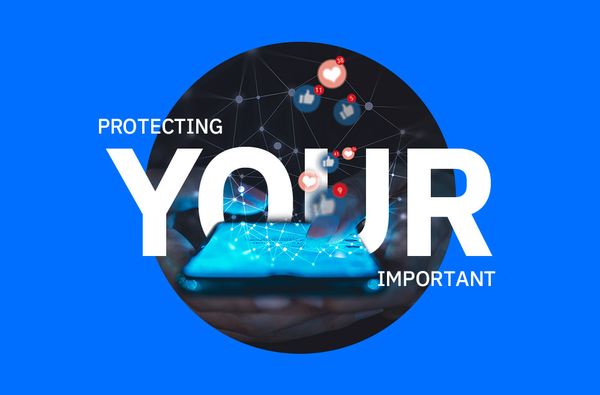Protect Your Important: Decoding the Rise of Social Media Frauds

Today’s social media scams and frauds are well-targeted and often highly complex, but they weren’t always like this. How did we get into this situation, and what can we do to adapt to the new world criminals created for us?
One major difference between scams before social media and after is that criminals had to look for victims; now, victims find the scammers online. Social media is the perfect vehicle for a “buffet” of scams and frauds, as victims can choose how to offer their personal information, credentials, and even money, directly to criminals.
Of course, social media scams didn’t just pop out out of nowhere. They’ve been with us from the start. They’re a nuisance, but the general impression that they’ve grown in size and scope is more than just a hunch. It’s a fact that social media is creating more and more victims, and the trend is not only going up, but -- it’s exploding.

A decade ago, social media fraud consisted mostly of impersonators who claimed to have official pages for well-known companies. Romance scams were also popular, but mainly because these types of criminals never disappear; they only evolve to take advantage of new opportunities.
Bit by bit, scams on social media started to grow ever more complex. Fraudsters began expanding their toolbox from 2017 onward as they started to ride the wave of interest generated by popular events. The shopping season became a prime target, but other significant events were also used. The COVID-19 pandemic was a godsend for scammers as accurate information was scarce, and the public’s interest and thirst for knowledge was at an all-time high.
Of course, just because social media took first place as the primary scam delivery method for scams, frauds, phishing and even malware, it doesn’t mean other threats went away.

The current landscape
While we continue to use the term “social media” to describe the online services that cater to human interaction, they’re not the same as they were a decade ago, even if some have the same names. Social media companies have taken some essential security steps to deal with the old threats, but the rise in fraud shows that more can be done to mitigate them.
Cryptocurrency scams are now omnipresent, as the attackers’ main goal is to persuade people to willingly give them money in return for bigger sums.

Fake shops that pay social media companies to display ads always pop up, especially during holidays. Not surprisingly, the second threat on social media is the plague of romance scams. It turns out that people continue to give strangers money, no matter the medium fraudsters use.
Conclusion and advice
Realistically, asking people to stop using social media is not feasible, even if that would be the best solution to stop these scams directly. The next best thing is to acknowledge the problem, understand the risks, and take the correct security precautions.
- Limit the exposure of personal information on social media, including addresses, phone numbers, pictures and so on. Keep the profile private and be wary of unknown people trying to start conversions.
- Social media is teeming with fake websites. Some promote incredibly cheap products that seem too good to be true, and others simply try to convince you that you’ve just uncovered an incredible opportunity - if you only pay a modest sum or transport fee.
- Anything that ever touches the cryptocurrency space needs to be treated with maximum skepticism. Scammers have been known to take over popular YouTube channels to promote crypto schemes, and they’ve even compromised legitimate accounts belonging to famous people for the same reason.
- Use security solutions on all your devices, such as Bitdefender Total Security for Windows, macOS and Linux, and Bitdefender Mobile Security for Android and iOS, that can stop people from interacting with dangerous websites and downloading malware.
- Start monitoring the digital you and check what type of personal information has been exposed online or on the dark web with Bitdefender Digital Identity Protection.
tags
Author
Silviu is a seasoned writer who followed the technology world for almost two decades, covering topics ranging from software to hardware and everything in between.
View all postsRight now Top posts
Start Cyber Resilience and Don’t Be an April Fool This Spring and Beyond
April 01, 2024
Spam trends of the week: Cybercrooks phish for QuickBooks, American Express and banking accounts
November 28, 2023
FOLLOW US ON SOCIAL MEDIA
You might also like
Bookmarks








